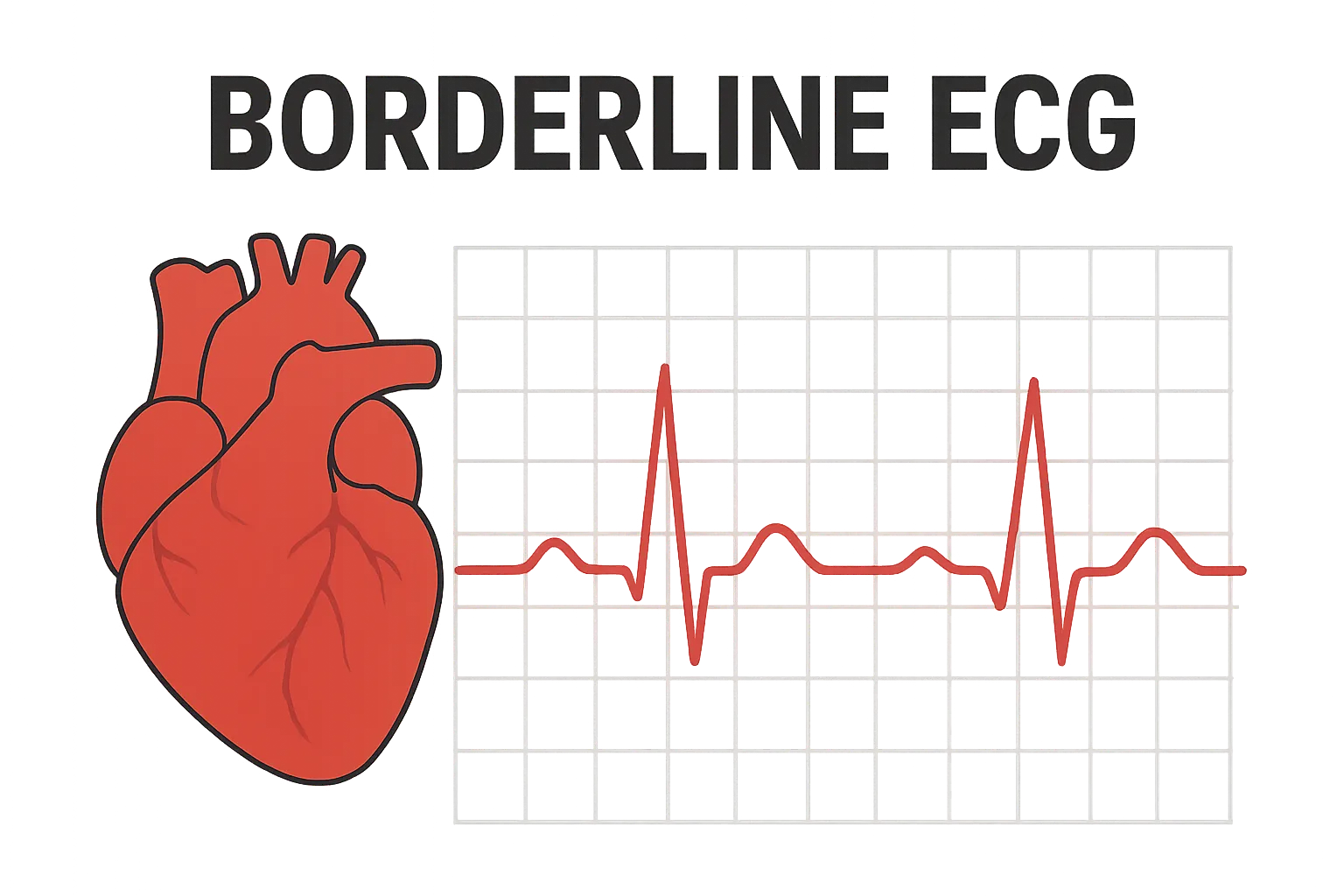Updated & refreshed content:
Updated & refreshed content:
Updated & refreshed content:
Updated & refreshed content:
Updated & refreshed content:
Updated & refreshed content:
Updated & refreshed content:
Updated & refreshed content:
Updated & refreshed content:
Updated & refreshed content:
Updated & refreshed content:
Updated & refreshed content:
Updated & refreshed content:
Updated & refreshed content:
Updated & refreshed content:
Updated & refreshed content:
Updated & refreshed content:
Updated & refreshed content:
Updated & refreshed content:
Updated & refreshed content:
Borderline ECG is an important medical term that describes minor changes in the electrical activity of the heart. This condition is neither completely normal nor clearly abnormal. Cardiologists and general practitioners in Pakistan often use this term.
What is a borderline ECG?
Introduction
Borderline ECG is a condition where there are some minor changes in the electrocardiogram (ECG). These changes are not completely abnormal but can be a cause for concern.
Characteristics
• Minor changes in the QT interval
• Mild changes in the ST segment
• Nonspecific changes in the T waves
• Minor changes in the heart rate
Causes of a borderline ECG
Root causes
1. Physical stress: Work pressure can affect the electrical activity of the heart
2. Dietary habits: High salt and fat intake
3. Sleep deprivation: Lack of sleep affects the heart rhythm
4. Weather changes: Differences between heat and cold
5. Medication use: Some medications affect the ECG
Medical reasons
• High blood pressure
• Diabetes
• Obesity
• Thyroid disorder
• High cholesterol
Symptoms and signs
Common symptoms
• Mild chest pain
• Difficulty breathing
• Rapid heartbeat
• Feeling weak
• Dizziness
Dangerous symptoms
Seek immediate medical attention if you experience these symptoms:
• Severe chest pain
• Left arm pain
• Sweating
• Nausea and vomiting
Diagnostic methods
ECG test
• Get a 12-lead ECG
• Use a Holter monitor
• Get an exercise stress test
• Get an echocardiogram
Blood tests
• Check Troponin levels
• Check Lipid profile
• Get a blood sugar test
• Thyroid function test
Treatment methods
Lifestyle changes
1. Healthy diet: fruits, vegetables, and less salt
2. Regular exercise: Walk for 30 minutes daily
3. Reduce stress: Do yoga and meditation
4. Quit smoking: Smoking is bad for the heart
5. Weight control: Avoid obesity
Medications
• Beta blockers
• ACE inhibitors
• Calcium channel blockers
• Statins (if necessary)
Precautions
Daily precautions
• Visit the doctor regularly
• Get your blood pressure checked
• Take your medications on time
• Drink plenty of water
Dietary precautions
• Reduce salt
• Eat less fried foods
• Eat a diet high in fiber
• Increase your fish intake
When should you see a doctor?
Urgent appointment
• Severe chest pain
• Difficulty breathing
• Feeling faint
• Rapid heartbeat
Monthly check-up
• Blood pressure check
• Weight control
• Medication review
• Repeat ECG
Complications
Potential risks
• Heart attack
• Risk of arrhythmia
• Heart failure
• Risk of sudden death
Prevention methods
• Regular treatment
• Healthy lifestyle
• Follow doctor’s instructions
• Get enough sleep
Future prediction
Good results
• Improvement with proper treatment
• Benefit from lifestyle changes
• Control with regular monitoring
• Most patients recover
Last updated on November 19, 2025.
Check out latest updates & share!
Check out latest updates & share!
Check out latest updates & share!
Check out latest updates & share!
Check out latest updates & share!
Check out latest updates & share!
Check out latest updates & share!
Check out latest updates & share!
Check out latest updates & share!
Check out latest updates & share!
Check out latest updates & share!
Check out latest updates & share!
Check out latest updates & share!
Check out latest updates & share!
Check out latest updates & share!
Check out latest updates & share!
Check out latest updates & share!
Check out latest updates & share!
Check out latest updates & share!
Check out latest updates & share!
